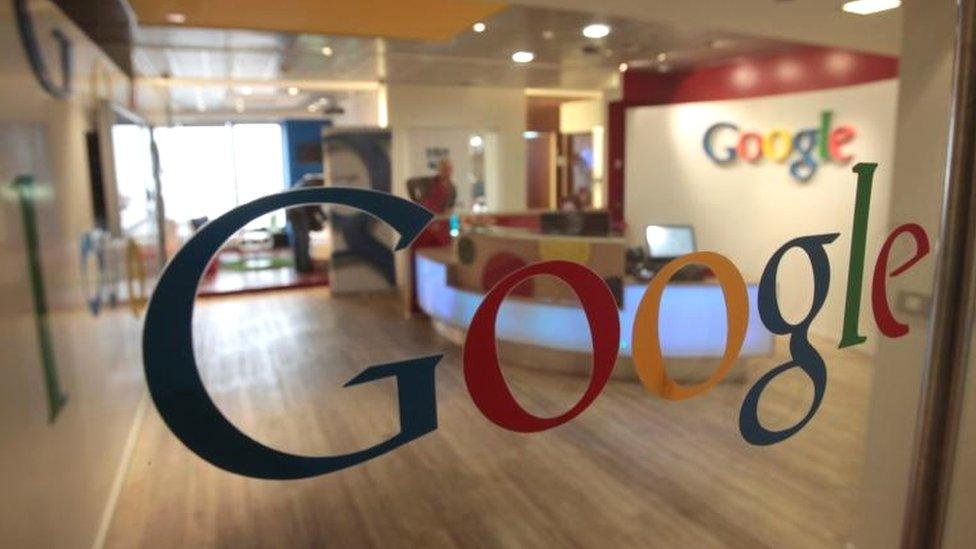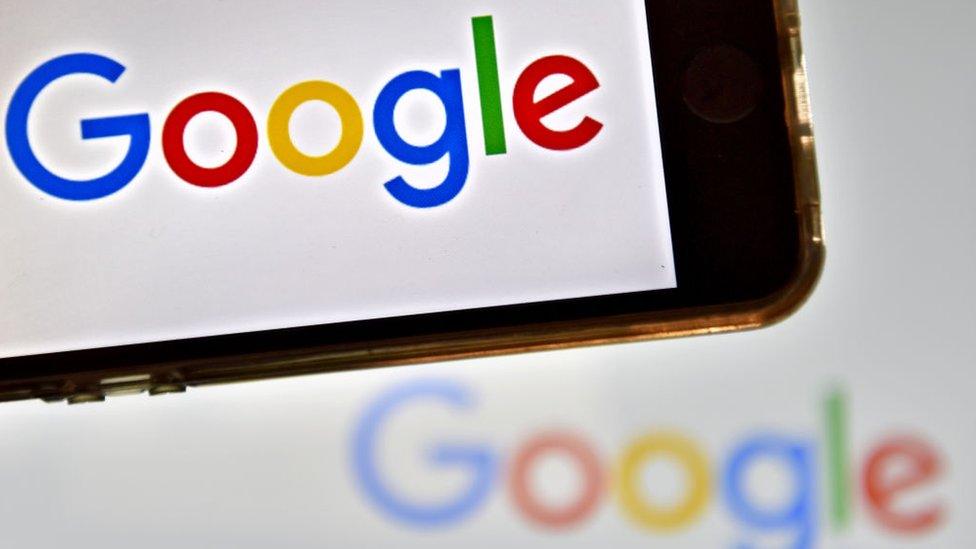Spring Statement: Chancellor threatens new tech tax
- Published

Chancellor Phillip Hammond has called for a deeper look at how tech giants such as Google and Facebook are taxed.
Mr Hammond said there was a need to consider interim measures, such as taxing revenues, rather than profits.
He first addressed the topic in the Autumn Budget, amid concerns the current system does not tax companies where they make their money.
He said the government hoped to find a solution along with other international partners, including the EU.
Another area he singled out for attention was online selling.
He said that, although online platforms and marketplaces, such as eBay, were good for the economy and for consumers, the way tax was paid on these transactions needed to be looked at to ensure the right amount was being paid.
Mr Hammond said some businesses were avoiding paying VAT on sales, but he added that others were simply unfamiliar with paying taxes as this had been done on their behalf.
"Some people who earn money from using these platforms may never have earned money without an employer to act as an intermediary between them and HMRC before, and can find it difficult to understand and meet their tax obligations."
'Threat to fairness'
Mr Hammond said the tech sector employed more than 1.5 million people and accounted for £6.8bn of investment in 2016, 50% higher than any other European country.
In a consultation paper, published to go with the Spring Statement, external, the chancellor said he hoped to target the measures in such a way that it did not harm start-ups and growing companies.
The big, global digital companies pay little tax in the UK. Instead they channel sales through countries with more favourable tax regimes, for example, Ireland and Luxembourg, something that has spurred public protests in recent years.
Mr Hammond warned that the current taxation of multinational giants posed a threat to the whole system.
"The current misalignment between where digital businesses are taxed and where they create value threatens to undermine the fairness, sustainability and public acceptability of the corporate tax system," he said.

Mr Hammond said he hoped this weekend's forthcoming summit of the G20 developed nations in Argentina would help to set out some concrete steps for achieving that.
But Chris Sanger, EY's head of tax policy, said any talks could be tricky: "The UK's update on the taxation of the digital economy comes at a delicate time - just as the European Commission and the OECD are racing to get their ideas out on what the future should look like.
"The debates next month at the G20 in Argentina will be difficult, and consensus will be difficult to achieve. In the absence of consensus, we may well be facing many years of double taxation, as countries like the UK apply taxes on turnover and others retain their approach to taxing profits."
He said such a move could damage the UK's competitiveness.
Rachel McEleney, associate tax director at Deloitte, said the move to examine taxes on online selling was, broadly, a good one: "We welcome this call for evidence - many people have no experience of completing tax returns. However, any trading and property profits via online platforms may need to be reported.
"It's not always clear whether a user is trading or selling unwanted possessions, and those who are trading do not always appreciate that this is the case."
- Published31 December 2017

- Published25 January 2018

- Published2 February 2018

- Published11 October 2017

- Published12 July 2017
